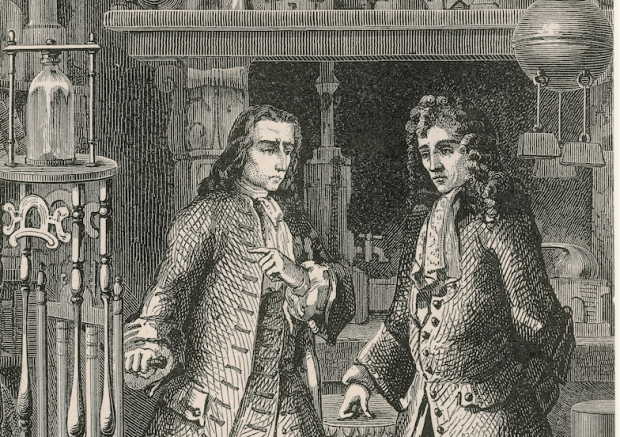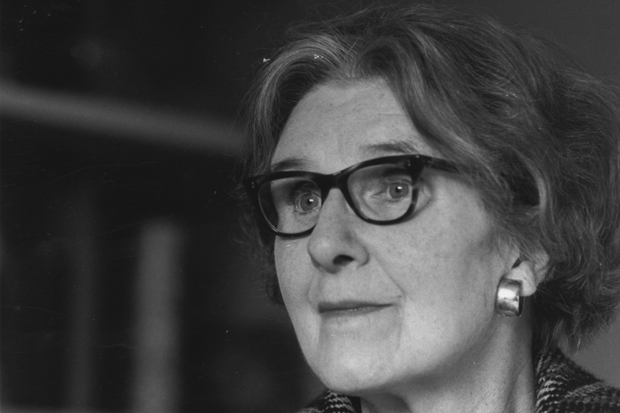Like most trade unionists in the 1970s and 80s I worked with a fair few communists. Men like Dickie Lawlor, Jock Cowan and Maurice Styles, postal workers for whom all events were viewed through the prism of ‘scientific socialism’. Communism gave them a philosophy by which to live their lives, and they were respected as men of principle even by those who abhorred their politics.
Marx may have disparaged religion as the opiate of the people (and, in an even more memorable phrase, the sigh of the oppressed), but it was difficult to avoid the term ‘religious zeal’ when describing the way men like Dickie, Jock and Maurice approached their union work.
By the time I knew them they’d long passed the stage of seeking converts. Indeed young commies were a rare species — and the number of communists I knew was far exceeded by the number of ex-communists.
When I asked Tom Jackson, my avuncular (and lavishly bewhiskered) general secretary and mentor at the Union of Post Office Workers, about his previous membership he adapted the aphorism attributed to Burke about republicanism: ‘If you weren’t a communist at 20 there was something wrong with your heart: if you were still a communist at 40 there was something wrong with your head.’
Tom was one of a multitude on the left of British politics (and a few on the right), who looked back on their involvement with the hammer and sickle as a youthful indulgence. Most had abandoned the cause after Stalin’s atrocities were revealed, or when the Hungarian revolution was brutally suppressed, or when the Russian tanks rolled into Prague.
The parents of David Aaronovitch were still communists at 40 and for the rest of their lives. For Sam and Lavender Aaronovitch the Party was as central to their existence as the air supply. As their son explains, it ‘amalgamated the radical and the conservative, the idea of massive, transformative change with the existence of a clear hierarchy of decision and the demand for loyalty’.
Sam Aaronovitch was born to illiterate Jewish migrants from Eastern Europe who’d arrived in London just before the 1906 Aliens Act severely restricted the right of entry. His very birthplace, Cable Street, was to become synonymous with the battle to the defend the East End from Mosley’s fascists in the 1930s.
Unwilling to follow his father into the rag trade and possessed by ‘a ferocious determination to learn’, Sam was educated mainly by the ‘University of the Ghetto’, otherwise known as Whitechapel Library. Soon he was defining his identity through the scarlet banner rather than the Mogen David.
Lavender’s background could not have been more different. The daughter of a senior British army officer who had married an actress, she was born in an outpost of empire and must have been expected to lead the genteel life of the comfortably privileged.
By the time she became Sam’s third wife she was a single parent and committed communist. Her new husband had by then become a full-time organiser for the Communist Party of Great Britain (CPGB). Together they set out to lay the necessary foundations for the revolution that was bound to rescue the country from its bourgeois democracy and transform it into a workers’ state under a dictatorship of the proletariat.
Through the skilful pen of their son the story of Sam and Lavender avoids cliché and simplistic interpretation. Communism is never presented as the political equivalent of Scientology. It had so many proponents and fellow travellers precisely because it seemed to offer a pragmatic and achievable alternative to the brutal and demeaning existence endured by so many under capitalism.
Given that for much of the 20th century around a third of the world’s population was governed by communism this book would have been deeply interesting as an insightful and accessible guide to how the doctrine fared in Britain. But it is so much more than that, weaving together social history with memoir in a way that enhances and enlightens both aspects of the book.
We baby boomers grew up in a world divided between communists and capitalists. Whole swaths of our continent lay behind the Iron Curtain and the social, political and economic ideology of Russia was a constant feature of everyday life and (through mutually assured destruction) a threat to our very existence.
But communism failed to capture sufficient hearts and minds in Britain even at its zenith, principally because of the Labour party. As Lenin mused: ‘At present the British communists very often find it hard to approach the masses and even to get a hearing from them.’
His solution was entryism; to urge workers to vote Labour and, once that party had gained power, replace its leaders with revolutionaries — or, as Lenin put it, ‘to support Henderson [then Labour leader] in the same way as the rope supports the hanged man’.
Aaronovitch relates all this with his usual clarity and style. He points out that by the time a more successful attempt at entryism was made in the early 1980s
the far left had become entwined in what Sigmund Freud called ‘the narcissism of minor differences’.
His description of the various trendy middle-class Trotskyist outfits he encountered at university and their vicious battles with each other over esoteric points of
philosophical difference is hilarious.
Sam and Lavender have more tangible differences, related to his adultery and her fear of abandonment. Their story is the personal thread that binds these pages. It’s told with tenderness and veracity. For David Aaronovitch their lifelong commitment to communism was explainable thus: ‘She was a Party member through thick and thin because it was a kind of family. He was a Party member despite everything because it was his bigger world.’
The problem was always with their hearts rather than their heads.
Got something to add? Join the discussion and comment below.
Get 10 issues for just $10
Subscribe to The Spectator Australia today for the next 10 magazine issues, plus full online access, for just $10.
Available from the Spectator Bookshop, £14.99 Tel: 08430 600033
You might disagree with half of it, but you’ll enjoy reading all of it. Try your first month for free, then just $2 a week for the remainder of your first year.














Comments
Don't miss out
Join the conversation with other Spectator Australia readers. Subscribe to leave a comment.
SUBSCRIBEAlready a subscriber? Log in